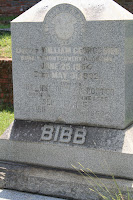My father, after his illness, grew more content with his writing and study of the Confederate Navy, or with mediocre work. He had been well-educated and groomed for the easy life that never materialized. The cast enshrining him from his pampered youth and then from his more recent sickness became impenetrable. What caused his demise and girth of anger is hard to pin-point. Whether he grew cranky after his disease, or as a result of it, or just became more and more embittered over the years, no one knew. His lack of initiative and apparent weakened condition, at least from his mother's perspective, precipitated Mamma's search for work as a money-maker.
Since Nannie had worked for years at the State Highway Department, she felt no compunction about encouraging Deane to find work outside the home. In the 1950s, the vast majority of women stayed home and tended their families, especially white, young women with children. Reluctant to leave her two children, Deane nevertheless relented and found a job.Enter Wilma as the keeper of the house and children, better known as a maid, typified by her daily gray and white pressed uniform and white linen tiara. Kindness lined her angular face showing every bone beneath her yellow-hued skin. She showed no preference to either child, but thoroughly attended their needs, including the weekly bus rides that delivered six year-old Missie to and from Helen Thorington’s Dance School, George in tow.
In 1954, William was born, Mamma went back to work, Daddy floundered, and Wilma tended three children daily, from eight to five. The relationship between Mamma and Daddy continued on its shaky path to oblivion.



































